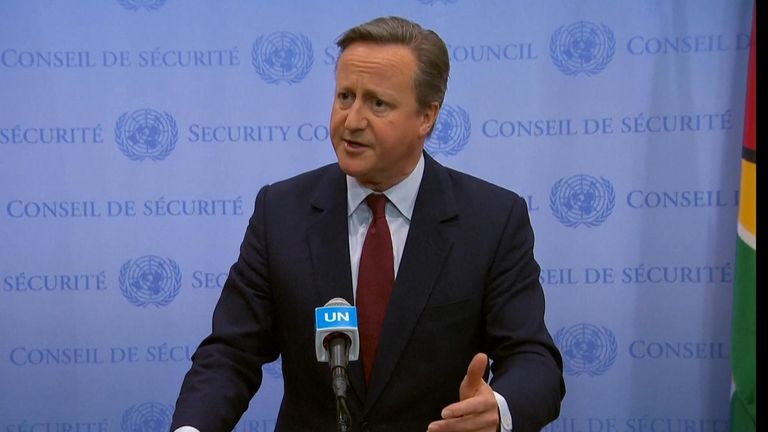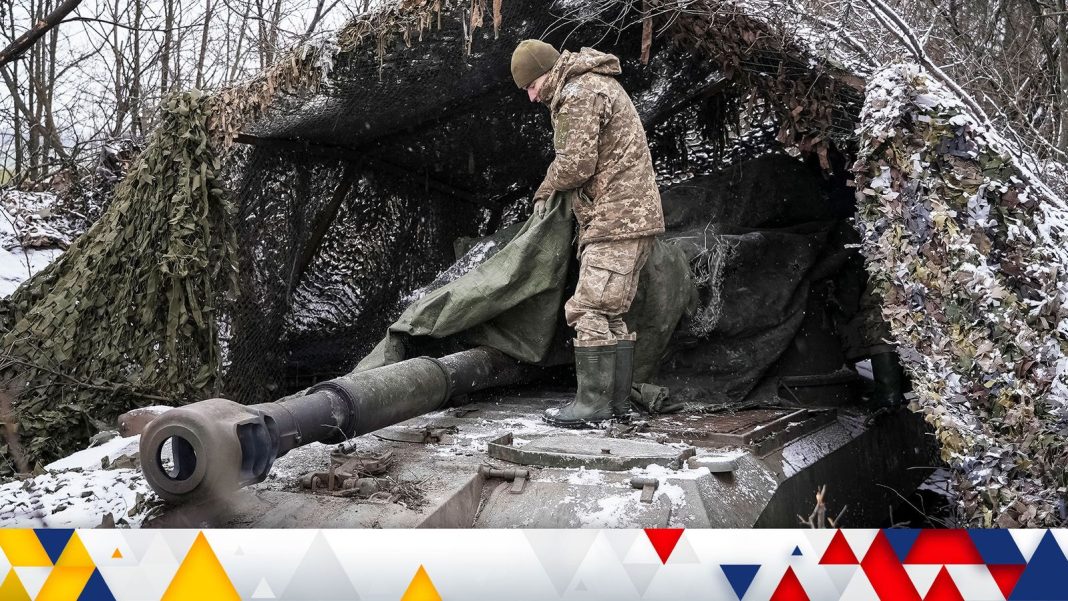When Russia launched its full-scale invasion, Ukraine’s president is said to have turned down a US offer to be evacuated with the words: “I need ammunition, not a ride.”
Two years on, Volodymyr Zelenskyy is still standing firm – but so too is his urgent need for weapons and ammunition, everything from bullets to fighter jets.
The UK and other Western allies rushed in support for the military during the first weeks of the war, with British and American anti-tank missiles playing a key role in enabling Ukrainian troops to fend off a Russian attempt to capture the capital Kyiv.
However, Western willingness to arm Ukraine has consistently lagged behind the requirement, in part because of concerns about giving too much capability and igniting a direct confrontation between NATO and Moscow – two nuclear-armed foes.
A Ukrainian soldier in the frontline village of Robotyne. Pic: Reuters
Those nerves have belatedly eased over time, helped by relentless lobbying by Mr Zelenskyy and an understanding that defending Ukraine is vital for wider European security.
As a result, Ukrainian commanders have received increasingly powerful weapons, from tanks and multiple rocket launchers to longer-range missiles and the promise of warplanes.
A bigger challenge now, though, is the West’s capacity to keep delivering.
Decades of defence cuts in the UK and other European allies since the end of the Cold War, coupled with a reduction in physical production lines to manufacture new weapons and ammunition, mean that stockpiles in Europe in particular are running worryingly low.
Efforts are under way to revive what is known as the military industrial base but they are woefully slow compared to what the Russian side is doing.
Vladimir Putin put his economy on a war-footing, ramping up production of arms, while also striking deals with fellow dictatorships such as Iran and North Korea to import weapons from them.
It means his ability to rearm Russian forces is far greater than the West’s ability to re-equip the Ukrainians, even though the combined strength of the economies of NATO’s 31 – soon to be 32 – member states is some 25 times that of Russia.
Read more:
Hundreds of new sanctions on Russia
Rod Stewart labels Putin an ‘a******e’
Please use Chrome browser for a more accessible video player

2:19
‘We can persuade Americans it matters’
Another major hazard is what direction the United States chooses to take.
By far the biggest and most powerful of Ukraine’s backers, US military support has been fundamental to Kyiv’s war-effort.
Joe Biden is clear that maintaining this assistance is vital, not just for Ukraine, but for the wider democratic world.
However, domestic political rows in the US Congress have held up the approval of a key funding package. There is also uncertainty about upcoming US elections and what a potential second Donald Trump presidency might mean for future support for Ukraine.
Entering his third year of full-scale war, Mr Zelenskyy will need to intensify the pressure even further on his allies to turn words of solidarity into more weapons.
Summing up the dilemma at a conference in Munich this month, he said: “Please do not ask Ukraine when the war will end. Ask yourself: ‘Why is Putin still able to continue it?'”







